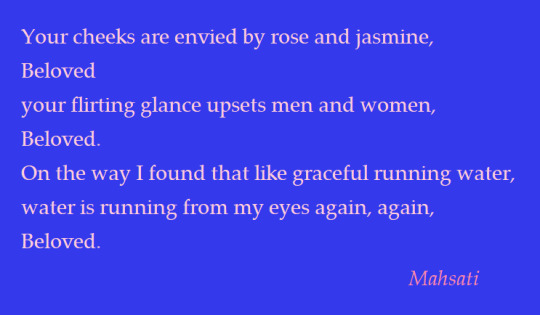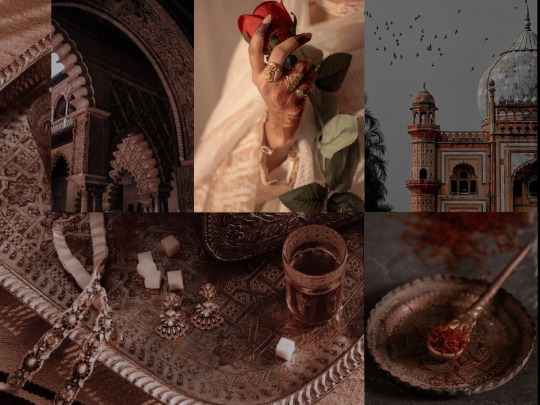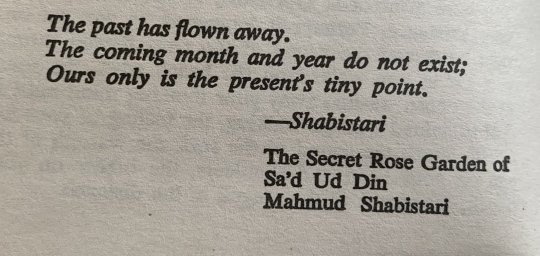#Sufi poetry
Text
“The day i die for you, that day is my eid.”
— Rumi
#rumiquotes#mevlana celaleddin rumi#rumi#eidulfitr#eid mubarak#eid#jalaluddin rumi#sufi wisdom#sufism#sufi poetry#persian#famous writers#famous people#famous poets#english writing#english#aesthetics#lit#english literature#spilled words#dark academia#light academia#choatic academia#desi academia#writer and poets#poets and poetry#poets and writers#txt#text post#explore
50 notes
·
View notes
Text
This is my last post for the year. This year was full of pain for me, from a massive earthquake in Türkiye resulting in a death of over 50,000 people, including a friend, to election disappointment in my country and especially now a horrible massacre and kidnappings of good and innocent people in a country I love by a terrorist organisation that resulted in even more death. My one wish for 2024: Bring them home safely. Let the war end. Let them heal. 🇮🇱 🕊️
Music by Tarkan.
#poets on tumblr#love quotes#love poetry#romantic poetry#love poem#romantic writer#onurtaskiran poetry#poets and writers#gentleman poet#love#poetrybyonur#rumi#sufi wisdom#sufi poetry#istanbul#new year wishes#bring them home now#peace#no more war#love is my religion
77 notes
·
View notes
Text

--Mansur al-Hallaj (d. 922 CE)
#literature#poetry#Mansur al-Hallaj#Mansour Al-Hallaj#sufism#sufi poetry#arabic poetry#mysticism#islam#islamic mysticism#brokenness
111 notes
·
View notes
Text
Kaaga karang dhadoliya saglaa khaaiyo mass Aey do nainaan mat chhuchho pir dekhan ki aas
(O crow! come and peck all this flesh over this skeletal frame of mine, Leave these two eyes untouched for they are in wait of that Grand beloved of mine)
-Baba Sheikh Farid (1173-1266 )
#baba sheikh farid#sufism#punjabi poetry#desiblr#sufi poetry#punjabi#desi#mehreen khan#desi academia#desi aesthetic#desi tumblr#desi culture#poetry blog#sufi quotes#mysticism#poetry in translation#classical literature
80 notes
·
View notes
Text
Allah ke siwa har muhabbat ko zawaal hai.
Kyunke har muhabbat ki ibtidah Allah se hai. Tumhein muhabbat ke laiq bhi usi ne banaya. Tumhein muhabbat karna bhi usi ne sikhaya.
To jisne tumhein muhabbat se bnaya aur phir tumhein usi sift se nawaza, uski jagah tum kisi aur ko kaisey de saktey ho?
Insan ho na, ghalti ka putla bhi usi ne banaya, Jab vo tumse tumhari pasandeeda cheez leleta hai to vo tumhein majbur kardeta hai ke tum sirf usi ki muhabbat ke kail hojao.
Aur phir kehta hai,
Ae Ibn Adam, bol. Tera mere siwa koi hai?
#islamicreminders#islamdaily#islam#islamic#sufism#sufi#sufi poetry#aesthetic#dark academia#dark acadamia aesthetic#female poets#poets corner#poetry#dead poets society#urdu sad poetry#urdu lines#urdu stuff#urdu shayari#urdu literature
13 notes
·
View notes
Text

Ruba'i by the Sufi poet Mahsati (1098–1185), translated by Paul Smith
After nearly 900 years, Mahsati is highly respected for her courageous poetry that condemned religious fanaticism and prejudices, hypocrisy and dogmas. In the city of Ganjeh in Azerbaijan, a street and a school, an academic institution, a museum and others have been named after her.
#influences#sufi poetry#mahsati#female poets#islamic poetry#sufism#muslim women#poetry by women#women poets#women in islam#ruba'i#religious poetry
17 notes
·
View notes
Text
«Zehaal-E-Miskeen | Amir Khusro
–This poem is written by Amir Khusro in Persian and Brij Bhasha. Brij Bhasha is a Dehaati Zabaan (country tongue) and a dialect of Hindi. In the first verse, the first line is in Persian, the second in Brij Bhasha, the third in Persian again, and the fourth in Brij Bhasha.

Zehaal-e-miskeen makun taghaful,
Duraye naina banaye batiyan.
Do not overlook my misery,
by blandishing your eyes and weaving tales,
Ke taab-e-hijran nadaram ay jaan,
Na leho kahe lagaye chatiyan.
My patience has over-brimmed, O sweetheart!
why do you not take me to your bosom.
Shaban-e-hijran daraz chun zulf,
Wa roz-e-waslat cho umer kotah.
Long like curls in the night of separation
short like life on the day of our union.
Sakhi piya ko jo main na dekhun,
To kaise kaTun andheri ratiyan.
My dear, how will I pass the dark dungeon night
without your face before.
Yakayak az dil do chashm-e-jadu,
Basad farebam baburd taskin.
Suddenly, using a thousand tricks
the enchanting eyes robbed me of my tranquil mind.
Kisay pari hai jo ja sunave,
Piyare pi ko hamari batiyan,
Who would care to go and report
this matter to my darling.
Cho shama sozan cho zaraa hairan,
Hamesha giryan be ishq an meh.
Tossed and bewildered, like a flickering candle,
I roam about in the fire of love.
Na nind naina na ang chaina,
Na aap aaven na bhejen patiyan,
Sleepless eyes, restless body,
neither comes she, nor any message.
Bahaq-e-roz-e-visaal-e-dilbar,
Ke daad mara gharib Khusro.
In honour of the day I meet my beloved
who has lured me so long, O Khusro!
Sapet man ke varaye rakhun,
Jo jaye pauN piya ke khatiyan.
I shall keep my heart suppressed
if ever I get a chance to get to her trick.
_________________________________________________
#divine love#spirituality#sufism#spiritual journey#patience#sufi poetry#sufi quotes#sufi wisdom#sufimusic#nusrat fateh ali khan#Rumi#rumipoetry#amir khusro#bulleh shah#amrita pritam
52 notes
·
View notes
Text
Sufi Love Through the Lens of Bollywood Music
Bollywood music is heavily influenced by Sufism and Sufi notions of love permeate the lyrics of most romantic songs. I want to explore some important Sufi concepts and how they manifest themselves in these songs and within the context of these movies.
Chand Sifarish from the movie Fanaa
youtube
"Zid hain ab toh hain khud ko mitaana, hona hain tujh mein fanaa"
trans: "I insist on ridding myself of me, I want to annihilate myself in you"
Bollywood romantic songs often emphasize on yearning, seeking and longing for the lover and Sufi poetry which speaks of a soul's yearning to unite with God serves as a useful metaphor to speak of the same. The intense, maddening, spiritual kind of love, although seldom portrayed accurately on screen is ever present in song lyrics. The concept of "twin flames" has been popular in the West for the last couple of years and is by and large, very misunderstood. From a purely spiritual perspective, The Lover and The Beloved are in each other all along (similar to the Jungian concept of anima & animus but slightly different) and yearn to unite with each other. In order for union to be possible however, one must first destroy their "ego" which they call "self".
2. Raabta from Agent Vinod
youtube
"Tera milna hai us rab ka ishaara maanu, Mujhko banaya tere jaise hi kisi ke liye"
trans: Meeting you was a signal from God, that he had made me for someone like you
There is a lot of emphasis on the soul's innate knowing and its longing for love which is its longing for God and how seeking union with the Beloved is the inner knowing to realise one's God nature and unite with God in Sufism. This song captures that feeling of things being "destined" and how God has always guided your union.
3. Katra Katra from Alone
youtube
"Khud se khaali ho jaoon, aaja tujhse bhar jaoon. Tinka, tinka jal jaoon. Aise jala do"
trans: "let me empty myself, let me fill myself with you. i want to burn up, twig by twig and you burn me."
This is a very erotic song and speaks of love in a very carnal way. However, this idea of dissolving yourself in your lover is a very Sufi one. What is love, if not absolute submersion in the object of your desire?
4. Satrangi Re from Dil Se
youtube
This movie itself is very deeply spiritual and I suggest watching it. However this song beautifully captures the 7 stages of love and two people going through it, in a very poetic and profound way. Go watch it!!
Some poignant lyrics include:
Dil ka saaya humsaaya
trans: The shadow of my heart is your shadow
(In my post about twin flames, I had touched upon this but I'll make another post about how the Jungian concept of shadow work and integrating your shadow is to understand your twin and merge them within your consciousness)
Koi noor hai tu (Are you a light?)
Kyun door hai tu (Why are you so far away)
Jab paas hai tu (When you're near me)
Ehsaas hai tu (Then you're a feeling itself)
Koi khwaab hai ya parchai hai (Are you a dream or a shadow?)
These lines alone capture the bittersweet, all consuming, indescribable and maddening feelings that a twin triggers in us.
I also highly suggest reading the lyric translation of this song as a whole because it captures the twin flame experience so exquisitely.
5. Tujh mein rab dikhta hai from Rab Ne Bana Di Jodi
youtube
"Tujh mein rab dikhta hai
Yaara main kya karoon
Sajde sar jhukta hai
Yaara main kya karoon"
trans: I see God in you my beloved, what do I do? My head bows down in worship to you my beloved, what do I do?
in my post I had mentioned the 7 stages of love, one of which is worship for the beloved. this song beautifully captures that feeling, of being absolutely devoted and enraptured by the beloved, that nothing less than worship could equate to how you feel for them. its beyond love, beyond admiration, its a holy kind of emotion, its devotion.
🧜🏼♀️🦢🦋👼🏼🧚🏼♀️🕊🐳👸🏼🧚🏼♂️🦋🦢🧜🏼♀️🕊🧚🏼♀️🦋👼🏼🐳🕊🕊🧚🏼♀️👸🏼🧚🏼♂️🧜🏼♀️🦢🦋
i wanted to keep this post brief so that it can be an accessible entry point but lmk if you want more posts of this kind!! i hope this was interesting💛💛
#Youtube#sufism#sufi quotes#sufi poetry#sufi wisdom#sufi#bollywood#bollywood movies#twin flames#soulmates#love#retro bollywood#bollywood icons#music#bollywood music#astroblr#astro community
40 notes
·
View notes
Text
I found some more quotes from Sufi poets. 😏 This refers to a soldier/poet who falls for a young (maybe slave?) soldier. Also, a good thing to know in Sufi poetry: when a soldier was called a Turk, that meant he was really beautiful, cuz Persians thought that Turkish soldiers were super hot I guess...
Put down your weapons boy! Bring me kisses! All this trouble and strife serves no purpose at all!
Take off and throw aside, O Turk, this battle raiment. Take up the lyre and put down your shield and sword.
The army left and that army-breaking idol left (with it). May it not happen to anyone to lose his heart to a soldier! - Farroḵi, Divan
8 notes
·
View notes
Text
عید گاہ ما غریباں کوئے تو، ایں بہ ساعت عید، دیدن روئے تو
“Your street is Eid-gaah for us poors, The glimpse of your face is the moment of Eid.”
— Amir Khusrau
#amir khusro#amirkhusrau#eidulfitr#eid mubarak#chaand#eid#eidfestival#muslimfestival#urdu#urdu lines#sufi wisdom#sufi poetry#sufism#sufi#aesthetic poetry#aesthetics#عید#چاند#moon#her face#pretty face#glory#urdu adab#urdu poetry#urdu stuff#fav#rekhta#desiblr#spilled truth#writer and poets
49 notes
·
View notes
Text
Love appears on the wings of grace.
This particular video was taken from Büyük Valide Han, in Istanbul. Video not mine. Music by Pasha Music.
#rumi#rumi quotes#jalaluddin rumi#sufi wisdom#poet poetry#sufi poetry#istanbul#life quotes#love quotes#türkiye#love poetry#daily poetry#beautiful words#beautiful city
86 notes
·
View notes
Text
some notes on sufism

The other day I went to the Harvard Divinity School Muslims iftar (the meal that breaks the fast during Ramadan), which was followed by a concert of Turkish music that is traditionally performed in Sufi lodges in Istambul. Before the music began, the professor I’ve been auditing Islamic literature classes with read some verses from Rumi’s Masnavi and offered a meditation on fasting through an interpretation of the lines: “If you have closed this mouth, another mouth is opened, which becomes an eater of the morsels of mysteries.” That is the nature of mystical knowledge—gnosis (or maʿrifa) is not understood intellectually, but tasted (dhawq). The closing of the bodily mouth is an opening of the spiritual mouth. He asked us to listen to the music with the inner heart.
I went with my friend S, who has been nudging me toward conversion. I’ve been allergic to religion most of my life because I’m not really much of a joiner. I distinctly remember being in (Catholic) Sunday School as a child and thinking to myself: This sounds fake to me. As in, made-up, irrational. The people who treated the fanciful stories like fact seemed like crackpots to me, even to my child-mind. I don’t think I ever believed in Santa either—I guess my disposition was innately skeptical; perhaps that contributed to my identification with anarchism from when I was 13 or 14. Yet at the same time, my feeling for the invisible, for the world of the dead, was always quite strong, even when it was unstitched from a belief system. As a kid I would wander the house alone at night, thinking I could hear my dead parakeet chirping from a shoebox in the garage.
I hated Sunday School. While I was always good at school-school (at least when I was a child, before I became an incorrigible truant), I was terrible at Sunday School. Because it seemed like hocus-pocus to me, none of it stuck. My classmates had internalized all the stories I thought were outlandish. During mass I would think exclusively about donuts, the ones we would buy from the ladies who would sell them as a fundraiser. I’ve thought about returning to Catholicism, but sadly, after the post-1970s political realignment in the US, all the leftist Catholics (the Marxists who loathed the Vietnam War and exposed the FBI’s COINTELPRO) are gone. As much as I love reading Catholic mystics (St Teresa of Avila, St John of the Cross, Angela of Foligno, Hildegard of Bingen, Meister Eckhart, Marguerite Porete, and others), Christian mysticism is more individualist than Islamic mysticism—asceticism and separation from the group is the way to commune with God, while Islamic mysticism is rooted in communal practices like sama (singing, dancing, reciting poetry, playing/listening to music) and dhikr (communal prayer for the remembrance of God). While Christian mysticism bears the imprint of the Neoplatonist trajectory of ascent, for Sufism, the trajectory is shaped like a paisley. After fana (annihilation of the ego/union with God/dying before you die), there is baqaa or subsistence, a return of sorts.
I also much prefer the Islamic orientation to the created world than the Christian one, for in Islam, everything in creation can be understood as the breath or speech of God. The Hadith on which Sufi cosmology is based reads, “I was a hidden Treasure and Loved to be known, so I created the world that I might be known.” All of creation is a mirror to reflect God (this is why you must polish the rust from your heart, for the human heart can manifest all the names and qualities of God). In the Islamic mystical tradition there is an affirmation of the created world even though God and creation are not the same (as is the case in Pantheism). Everything has ontology. Nothing has ontology. The Sufi metaphysicians ask us to see with two eyes. The drop is not the ocean at the same time it cannot be separated from the ocean.
7 years ago I read Reza Aslan’s God: A Human History. After sampling the platter of world religions I joked to myself, Hmmm, if I had to pick the one I vibe with most, I guess it would be Sufism (Islamic mysticism). I didn’t know anything about Sufism other than the Rumi and Hafez poetry I read as a teenager, but the way Aslan described Ibn ‘Arabi’s concept of 'wahadat al-wujud' (or Unity of Being) reminded me of Spinozism. I guess what I’m trying to say is...I just think Sufi metaphysics is...right. Or, it speaks to how I tend to think about reality. It’s not something I can prove (that I don’t exist, while at the same time I am part of the ALL that is God), but it makes the most sense to me.
In the Sufi literature class, S jokes to me: “You’re the only non-Muslim in this class.” The same was probably true at the iftar + concert. S points to someone from the class: “The Maoist is a recent convert. This is their first time fasting for Ramadan.” “Is [our professor] fasting?” “Of course. I saw him at the iftar last night and talked to him about translation. I told him it’s ghastly to try to fit Persian verse into an English rhyme scheme. He agreed with me.” (We are clearly partisans of blank verse translations… yet so much of what’s out there has been poorly translated or not translated at all.)
Much of the lyrics sung with the gorgeous music were verses written by the great Turkish-language Sufi poet and mystic Yunus Emre ("the Dante of Turkey," I whispered to S). S was ecstatic listening to the haunting ney (a kind of flute). We just so happened to be sitting in the same row as the professor. I tapped S and whispered that it looked like he was really enjoying the music. He was smiling with his eyes closed and swaying his head from side to side. He looked like he was having...a profound experience. This prof usually has what I guess you’d call ‘resting bitch face’ (which I always found funny because it runs counter to his sweet and gentle personality). But not at the concert. Pure bliss was painted on his face. It was then that it dawned on me that Sufism, for him, was probably something more than a scholarly interest. I thought about what it must have been like to discover something so beautiful and profound, and to know, in that moment, that your life will be changed forever—you might go off to Iran and devote your entire life to studying medieval texts.
Of course this Ramadan I am thinking continuously about the genocide in Gaza, how an entire population is being starved to death by the sadistic leaders of Israel, how terrible it must be to be bombed and shot at during the holy month, or to break your fast with boiled grass and animal feed. I feel truly ashamed to come from a country that is complicit in this violence. I hope everyone continues to apply pressure to end this war—it feels hopeless now, but it is making a difference.
20 notes
·
View notes
Text

#Sufi Poetry#Sufi Gnosis#Mahmud Shabistari#The Secret Rose Garden#Awakening#Enlightenment#Eternal Now
11 notes
·
View notes
Text
Since you've adopted reason as your guide, you do not know yourself from your seperate parts.
- Mahmud Shabistari
#Mahmud Shabistari#guide#seperate#sufi#sufi poetry#poetry#rumi#quote#life#love#spirit#soul#spiritual quote#life quote#love quote
19 notes
·
View notes

